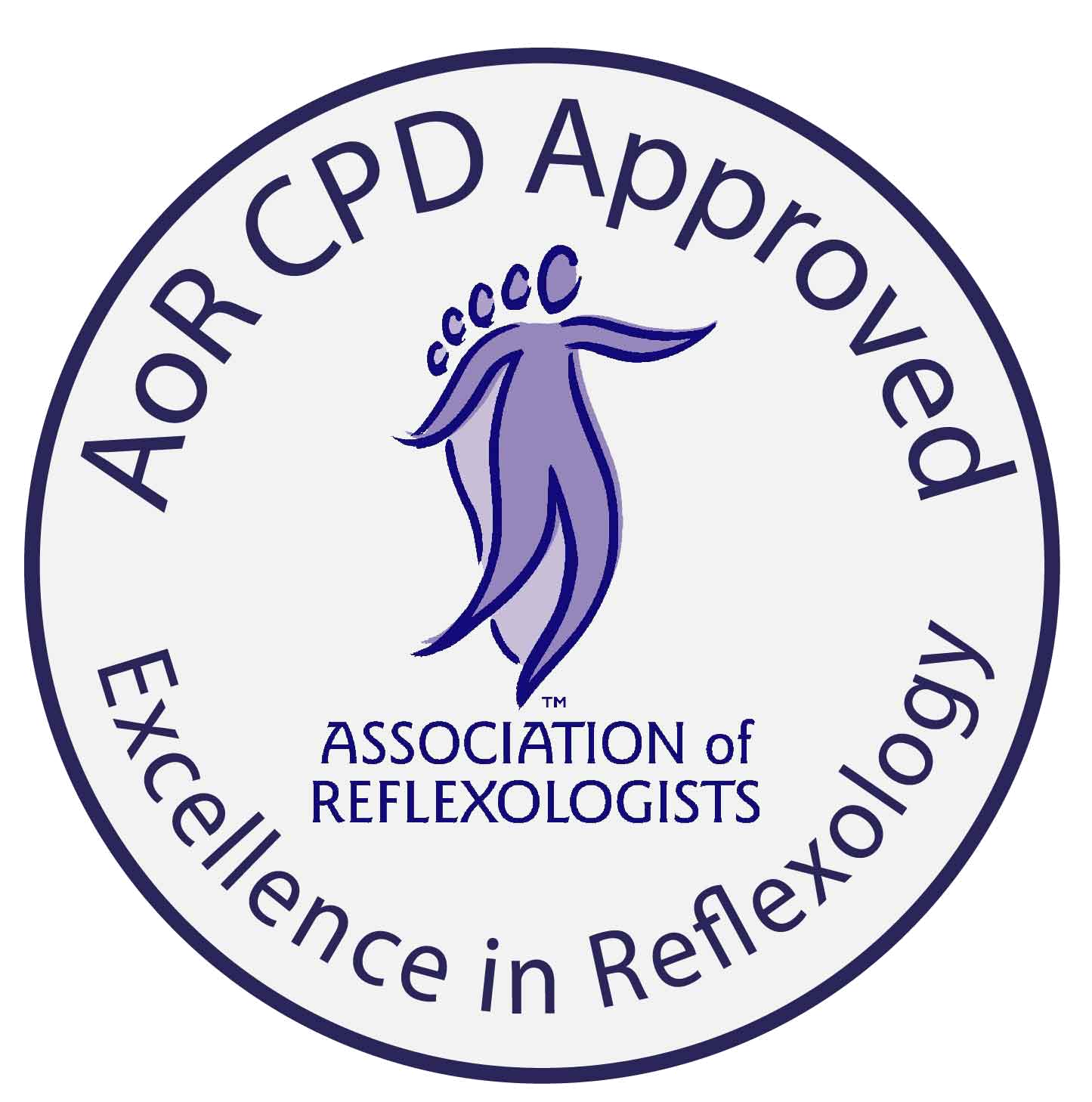Jubilee College is delighted to welcome
Chantel C. Lucier
President of the
Reflexology Association of
California
REFLEXOLOGY FOR TRAUMA & ADDICTION (RTA) Part 1
COURSE DESCRIPTION: 
Chantel’s 2-day reflexology workshop is comprised of three segments that utilize lecture, demonstration, and hands-on practice. The three segments that make up the workshop are:
- The No-Mind Approach to Wellness (a philosophy and methodology to help you release the diagnosis with clients and loved ones)
- A Compassionate Intake Process (CIP) ~ holding space for someone’s healing
- Reflexology Protocols (hereafter referred to as "Guides") for Trauma and Addiction
Adopting what Chantel calls “The No-Mind Approach to Wellness” during a session helps the practitioner to release judgment and any need to control or fix the client. It also creates an opportunity for the client to release what they too may be holding onto since their diagnosis. This, in turn, creates a more conducive environment for the client’s healing process. In addition, students will learn to cultivate a thorough and compassionate intake process. Because injury, illness, discomfort, and disease are not always what they seem, students will learn tools to assess and address not only the symptoms but also what may lie beneath the surface. The root cause—or what Chantel refers to as the emotional underbelly of the injury, illness, or disease—will be explored. This combination of releasing the dis-ease (or diagnosis), inhabiting a No-Mind Approach, and providing sensitive and compassionate inquiry, will then be coupled with Reflexology Guides to nurture the central and peripheral nervous systems, thus addressing symptoms as well as the undercurrent of the trauma and addiction within the client. In all segments, students will cultivate their heart space and enter what Chantel refers to as the “back body” to nurture good listening skills, heart-centered responses, and providing an effective session.
Anatomy & Physiology
- Anatomy and physiology of the brain and the areas, structures, and glands that play a role in thought processes, habitual negative thought patterns, and dissociative and detachment disorders and tendencies.
- Specific attention will be paid to the amygdala, hippocampus, hypothalamus, thalamus, basal ganglia, and pituitary gland. Also, an understanding of the role of the limbic system versus the prefrontal cortex and how to address these areas via the mini map in our own and our client's hands and feet.
- Areas of the body that may show symptoms, pain, or imbalances in those who have experienced trauma and for those with active or past alcoholic or addictive behaviors.
- Which structures, glands, and areas of the brain require detailed work for trauma and addiction.
- The HPA axis and the target organs, glands, or systems affected by the trauma &/or addiction from a reflexology perspective.
- The neurological system and how reflexology works via this system, directly related to how we receive internal and external stimuli.
- Reflexology Guides to address trauma and addiction and how they may vary depending on the type of trauma or addition (e.g., opioid, alcohol, nicotine, marijuana, or stimulants).
- Self-care tools to use and impart to clients.
Students will learn:
- Releasing our ideas of what the client needs.

- Suspending our judgment of the client or diagnosis.
- Learning how to retrieve information using a compassionate intake process.
- Understanding trauma, subtle energy, and how to create safe spaces for our clients.
- Asking the right questions to target the underbelly of the dis-ease and empowering the client to discover the answers on their own.
- Aligning our energetic body to best serve our client.
- Having a rich understanding of the nervous system and the Bodymind in order to best address a client’s concerns.
- Reflexology techniques and methods.
- Anatomy and physiology of the brain.
- The parts of the brain responsible for mood, addictive behavior, and emotional processing.
- Reflexology guides for trauma and addiction.
- New reflexology methods, techniques, and "subtle holds" for a detailed and integrative session.
Course Cost: £260.00
You can choose to pay £260.00 in full or pay a non-refundable £50.00 and pay the remainder by Monday, June 15, 2026
Course Dates & Location:
Saturday & Sunday 20th & 21st June 2026 - Novotel Nottingham (Jcn 25 of M1)Pay in full booking optionPay in 2 payments booking optionThe first is a non-refundable £50.00; |
Course Times: 9.00am - 5.30pm
Prerequisites
There is no prerequisite for this class. Open to all levels. While some techniques are advanced, Chantel’s approach makes the content, methods, and techniques easily accessible to all. Reflexology is a hands-on practice. Who takes this class: reflexologists, body workers, nurses, yogis, sound healers, reiki and energy students and practitioners.
Approximately one month after the workshop students will meet over Zoom for a post-workshop get together for a Q&A and to discuss how the work is going. Students will become part of this growing community of practitioners learning how to incorporate these principles into their work. Students will receive discounts on all future webinars and receive all on-line workshops for FREE to continue to explore and deepen their practice.
Can't make of the dates, or course not listed in your area?If you would like to be kept up to date with CPD training coming to your area please click here |
CPD Points
This course is an AoR aproved course, offering DOUBLE CPD POINTS and is also recognised as suitable CPD by the majority of reflexology associations in the UK and internationally.
Please note, you are booking direct with Chantel Lucier for this course. If there is any further information you need, please feel free to email chantellucier@gmail.com